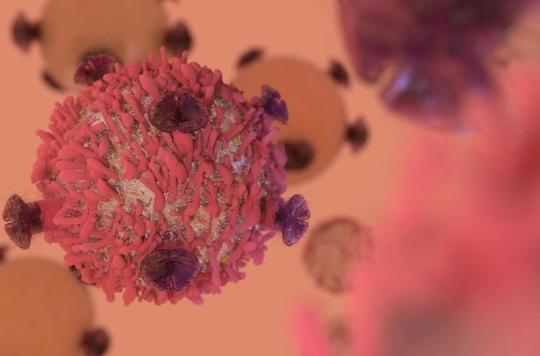British researchers have discovered a new type of T cell that would be able to attack receptors common to many cancers: lung, skin, breast, bone, prostate, ovaries, kidney and cervix.

What if they had found a “universal” weapon against a large number of cancers? This is in any case what seems to show a work carried out by researchers from the University of Cardiff (United Kingdom) and whose results were published on January 20 in the journal Nature Immunology.
Scientists have identified a new type of T cell — a class of leukocytes that plays a big role in the immune response — that would be able to attack multiple forms of cancer cells without destroying healthy cells.
A major step forward
A discovery that should make it possible to develop immunotherapy treatments targeting many cancers such as lung, colon, breast, prostate, blood, skin, ovarian and cervical cancer. It could therefore be a major step forward in the fight against these diseases.
The Cardiff University team used the genetic scissors technique (CRISPR-Cas9) to demonstrate that a T cell receptor called TCR recognized and killed “most types of human cancer” while remaining inactive against against healthy cells.
This receptor causes an interaction with a molecule that is located on the surface of each cell in the body, the MR1 molecule, which seems to be the one that tells the receptor whether the cell is cancerous or not. “We are the first to describe a T cell that finds MR1 in cancer cells, this has never been done before,” one of the researchers told the BBC.
“The prospect of a ‘one-size-fits-all’ cancer treatment”
If this discovery has not yet been tested on patients, it has caused a regression of leukemia and melanoma in laboratory work? In contrast to invariant mucosa-associated T cells, TCR recognition of target cells was independent of bacterial load.
“Our discovery opens up the prospect of a ‘unique’ treatment for cancer and so far no one thought this was possible,” Professor Andrew Stewell told the BBC. The identification of TRC should serve the efficacy of cancer treatments by immunotherapy, a strategy that involves using the body’s immune defenses to attack and destroy cancer cells.
.
















